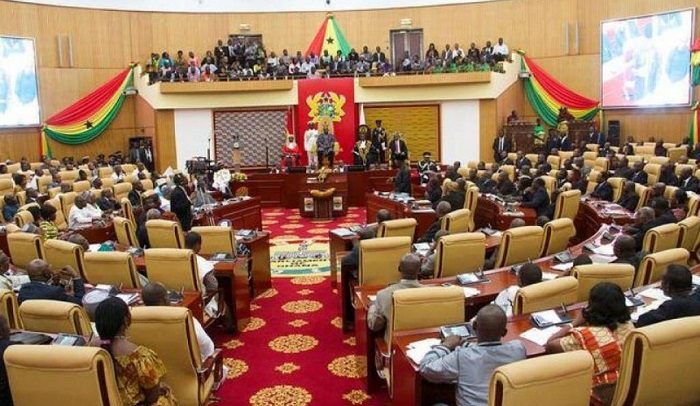THREE MINING lease agreements granting mineral rights to an investor, Electrochem Ghana Limited, to dig for, mine and produce salt at Ada Songor area in the Greater Accra Region, have been approved by Parliament.
The mining lease agreements are in respect of the Ada Songor Salt Project (Ada West Lease Area [Ada Songor]), the Ada Songor Salt Project (Ada East Lease Area [Ada Songor “B”]) and the Ada Songor Salt Project (Ada East Lease Area [Ada Songor “C”]).
They were laid in Parliament for ratification on Wednesday, November 4, 2020 by the Minister for Parliamentary Affairs, Mr. Osei Kyei-Mensah-Bonsu, on behalf of the Minister for Lands and Natural Resources, Kwaku Asomah-Cheremeh, in pursuant to Article 268(1) of the Constitution and Section 5(4) of the Minerals and Mining Act, 2006 (Act 703).
Background
In the early 1970s, some investors acquired lands in the Ada Songor area from various clans to produce salt. The investors subsequently acquired leases from the government in line with PNDCL 153 for their production operations.
However, due to conflict which erupted between the people of Ada and the investors, the government had to intervene, and in 1992 cancelled the 30-year mining leases granted to two companies namely, Vacuum Salt Products Ltd. and Star Chemical Industries Ltd.
After the cancellation of the leases, the government established an entity to utilize the facilities of the Vacuum Salt Products Ltd to continuously produce salt in the interim, while a permanent solution was being sought for the establishment of a more sustainable salt industry in the area.
The Parliamentary Select Committee on Mines and Energy, in its report, indicated that almost 30 years on, four of such entities had existed and the permanent solution had not yet been put in place.
Chairman of the committee, Emmanuel Akwasi Gyamfi, stated that the salt production had rather fallen to the lowest level due to both technical and managerial factors, and about 10 per cent of the original project area designated for salt production had been taken over by the community for artisanal salt production.
Renewed commitment by the government for finding a more permanent solution had led to identification and entering into agreement with Electrochem Ghana Limited to exploit the salt resource base in the area.
The leases will last for a term period of 15 years and it may be renewed after the expiration of the term subject to the minerals and mining laws of Ghana.
He reported that the investor had committed under the leases to pay on or before the execution of the agreement, an annual mineral right fee of US$100,101.00 to the Minerals Commission.
Electrochem Ghana Limited was also liable to pay royalty every quarter in accordance with the Minerals and Mining Act, 2006 (Act 703) and an annual ground rent to the state represented by the Lands Commission, Mr. Gyamfi said.
“Electrochem Ghana is further under obligation, to allow members of the local community, to exercise customary rights and privileges such as hunting and snaring of game, gathering of firewood for domestic purposes, collection of snails, farming and observation of rites in respect of sacred areas in and over the licenced area,” he stated.
Observations
The committee noted that the national potential production capacity for salt was estimated at 2,330,000 metric tonnes out of which the area under consideration accounted for about 1.4 million metric tonnes.
It was further noted that the actual production currently was about 330,000 metric tonnes, leaving a variance of 2,000,000 metric tonnes.
By Ernest Kofi Adu, Parliament House


